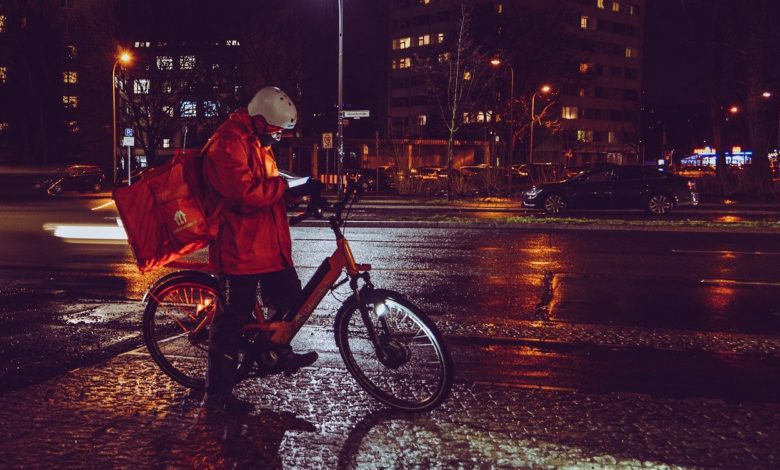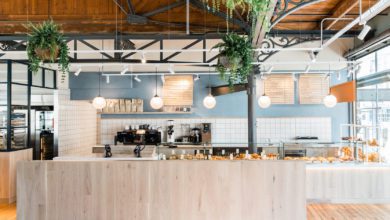Are food delivery apps ethical?
More and more restaurateurs are using delivery apps to reach their customer base - but are they doing enough to make sure couriers are being treated fairly?

Register to get 1 free article
Reveal the article below by registering for our email newsletter.
Want unlimited access? View Plans
Already have an account? Sign in
Since the pandemic began the purpose of food delivery apps has changed drastically: what was once a service used mainly by city locals searching for a hangover cure has transformed into a vital service in which people (especially those in self isolation) can access food. And it’s not just consumers who have benefitted from this – with restaurants closed, many businesses have been forced to rely on takeaway sales as a means to survive.
Why delivery apps are winning
Food delivery apps’ new found fame has been a boon to the market leaders. Deliveroo, one of the industry’s biggest contenders is currently said to be eyeing up a stock market flotation which would value the company at £5bn. In the technology age we know easy and instant gratification is the key to customers’ hearts, but what makes these apps so successful?
“When looking at the market leaders, it comes down to simplicity. It doesn’t matter which one you download, wherever in the world – the layout, design and user experience are pretty much identical, making them second nature”, says Shivaun Gyan co-founder of Found, a lifestyle mobile app.
“Second to this is personalisation. Rather than the user looking for something to eat, these apps often suggest cuisines and venues to customers based on past ordering habits, so the chances of conversion are higher. Adding to this are increasing promotions not available outside the app, which to customers on a budget or those excited by deals, may be a critical deciding factor, but this isn’t always necessarily the case,” he explains.
“The ordering apps that exist from established and traditional ‘eat-in’ chains are slightly different. These are more varied and bespoke in design and often have a strong loyalty program to reward repeat business. Still, this custom-designed interface often creates a barrier to usage if the customer needs to learn to navigate a new screen every time for every restaurant. These homegrown apps have often failed to triumph over the standardised multi-venue aggregator apps with a few exceptions.”
Worker woes
While it may be tempting to turn the founders of these apps into a pin-up for business inspiration: it is important to recognise that the success of these companies relies largely on the drivers who operate within the UK’s gig economy – the freelance work model which employs around five million British people.
This employment style purports to offer benefits to workers, namely that they can pick their own hours and are not required to show loyalty to one brand. However in recent years it has been argued that ordering apps have exploited their couriers leading many to strike for better working conditions.
“They say we can work flexibly, and whilst we do not have written compulsory work hours, apps invariably put on ‘fee boosts’ at ‘peak hours’ which are anti-social hours between 7-9pm Friday-Sunday”, explains one driver who spoke to Catering Today about their experience working for one the UK’s most popular delivery apps.
“This superficially sounds like a bonus, however, it’s underhanded manipulation because unless you work these hours that they want you to work where they pay you slightly more, your odds of making ends meet isn’t as high. That’s not flexibility, that’s blatant avoidance of employment legislation.
“We need improvement to our working conditions, specifically the pay needs to stop deteriorating and they need to stop over recruiting. Moreover, basic hygiene and safety requirements need to be met, like access to toilets, hand washing facilities and PPE that keeps us safe whilst carrying out our essential work”, they add.
“I’m not self-employed, at baseline the companies choose when we work, and now we are desperate we are taking anything we are given, working regardless of anything else because we need too, there is no choice in it.”
Catering Today reached out to the company for a comment however they failed to respond
Can restaurateurs help?
Despite the gripe some couriers have it is unlikely that we will witness the fall of delivery apps anytime soon – high streets are desolate and this technology has offered a new means of exposure for small independently owned restaurants.
However for the socially conscious hospitality owner is there anyway to be an alley to these workers? ”There is a whole load of ways that restaurateurs can make the situation better and avoid having negative relationships”, says Callum Cant, ex-delivery driver and author of Riding For Deliveroo: Resistance in the New Economy.
“We have to think about what is the actual use value of this work, for me there is a good cause for food delivery, it is a care platform so we have to think about how we can take that cause and reorganise the social relations around it”, he explains.
“Make sure you don’t call drivers excessively early. Some restaurants call 20-30 minutes before the food is ready because they want the food to go out really hot – but that just means that the worker has to sit for that amount of time unpaid waiting for you to have everything ready to go. After a while workers will start to decline going for that order and no one will go to that restaurant. In the end it’s not a productive solution for anyone.”







